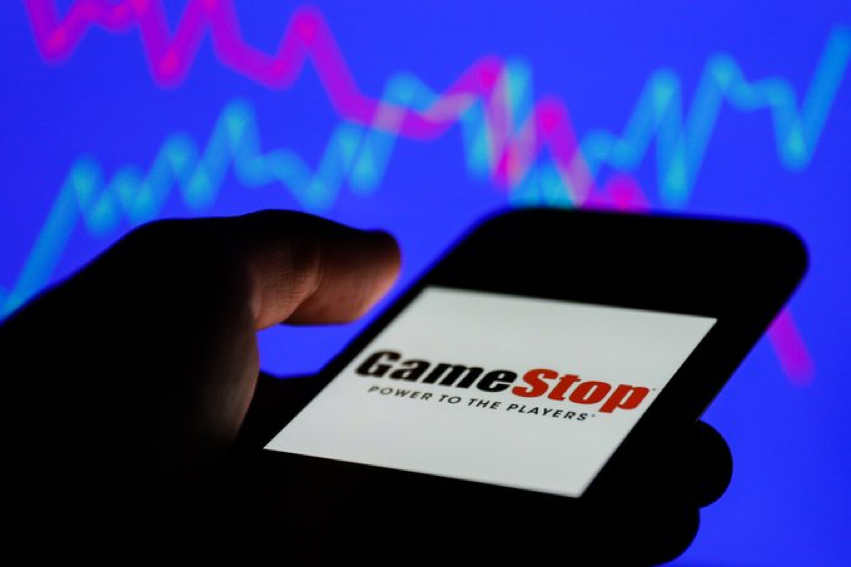GameStop Saga Displays Uncertainty of Stock Market
As someone who pays attention to the stock market, I watched from the sidelines in recent weeks as many “main street” investors banded together to pump up the stock prices of seemingly failing companies like GameStop (GME). Many Fordham students stayed up-to-date on these events as well.
The GME saga is a reminder to Wall Street that true power remains in the hands of the people. Thus, when funds like Melvin Capital make a bad bet that advocates for the failure of American businesses, the surprise of regular people profiting instead simply feels right. Big banks, corporations and funds often don’t hesitate to expand their wealth in unethical ways, so why should we hesitate to play by their rules? The people are simply exposing these hedge funds’ failures.
Motivation for this recent increase in trading activity stems from the desire for revenge. Individual traders were eager to get back at those responsible for the financial corruption and incompetence that led to the 2008 housing crisis. Many posts on the WallStreetBets Reddit forum “relish watching short-sellers lose billions of dollars.”
This distaste for Wall Street has been brewing since 2008, when the house of cards that was the American financial system came tumbling down all at once, causing millions of Americans to lose their jobs and triggering a global financial crisis. When the opportunity came to make money at the expense of the billionaires who received a government bailout to save themselves, everyday traders were quick to buy into GME. In some sense, I certainly share the anger of the traders who wanted to make a profit in exposing an unethical short sell.
Thus, GME’s price continued to grow. Ideally, large hedge funds would have learned their lesson and individual traders would have easily consolidated their profits day by day. The reality of the situation became much more controversial. Robinhood, the commission-free platform that many individual traders had been using to broker their trades, decided to halt the purchases of several different stocks that WallStreetBets had been pumping up the price of. This forced the app’s users to either hold or sell their shares. The price of GME tanked, losing more than 44% of its value in a single day.
The backlash was swift and fierce on social media, drawing criticism from Congresswoman Alexandria Ocasio-Cortez, as well as many Robinhood customers who joined class action lawsuits. In a surprisingly short statement seeking to justify its controversial decision, one that many were quick to label as “market manipulation,” Robinhood cited “market volatility” as its main reason for halting GME trading.
It was at this time that I began to realize how ironic it was that this brokerage service was named “Robinhood,” given that it had single-handedly caused individual investors to lose large amounts of money. However, if the company had been clearer in its reasoning for halting trading, there wouldn’t have been as much of an uproar. Brokerage services like Robinhood are “financially liable to the ‘clearinghouses’ that clear and settle U.S. stocks and options, whether or not the clients can pay for their losing trades.” This means that if the price of GME dropped from $347.41 to $193.60 and customers couldn’t afford to sell, Robinhood would’ve been liable for those losses.
Either Robinhood was anticipating the GME bubble to burst and stopped the price from rising any higher for that reason, or they simply didn’t have enough cash to absorb potential losses. It seems to be the latter, as CNN reports that Robinhood tapped into $1 billion cash from private investors. However, it is important to point out that it was Robinhood who caused the bubble to burst in the first place, intentionally devaluing the stock.
As it stands now, GME sits at roughly $62 per share. The Securities and Exchange Commission is investigating the entire affair to figure out exactly what happened and what needs to change to protect the market in the future. I admire those who bought into GameStop, but in affairs such as this, I think it’s wise to remember how much is at risk when we invest money into the market.
We are beholden to services like Robinhood who execute trades, and when they say that the party’s over, we are left with no choice but to obey. No matter how unethical and unfair it may seem that Robinhood caused their customers to lose massive amounts of money, we must have faith in the fact that the financial system will expose any illegalities that have occurred.
Julian Shuttleworth, FCRH ’24, is a political science major from Columbus, Ohio.










































































































































































































